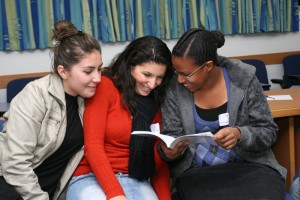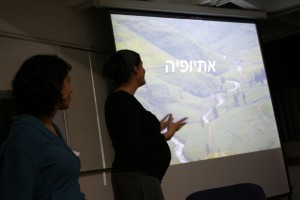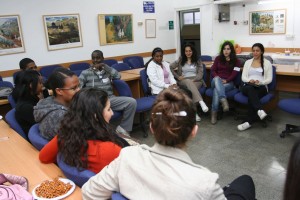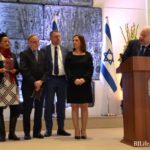Empowerment Program for Ethiopian Youth Collecting Filmed and Oral Histories of Prisoners of Zion

ATZUM is embarking on an intergenerational project in the Ethiopian community, bringing together Ethiopian youth and Ethiopian Prisoners of Zion. The category “Prisoners of Zion” was established by the State of Israel for those who were imprisoned (and many severely tortured) for at least six months prior to making aliya as a result of their Zionist organized activities. While this group includes Arab country immigrants and several FSU immigrants, by far the most at-risk and least well organized are the Ethiopian Prisoners of Zion.
To shed light on their struggle to reach Israel, and to provide incentive and foundation for their communities better integration into Israel society, ATZUM seeks to establish Project Abrah (=illuminate in Amharic). The project will embrace 12-18 Ethiopian 11th-12th graders to work in small teams/havrutot. Those teams, with computers and video cameras, will interview the Prisoners of Zion, providing their elders with the satisfaction of permanently recorded accounts of their heroism, and providing their descendants with a deeper sense of pride in those elders’ courage and sacrifice. This is crucial to an environment in which there too often exists a tragically, profoundly dislocating alienation among Ethiopian generations in Israel.
Further, ATZUM will provide a framework for these meetings, building the background and skills for these encounters as well as creating a place to share experiences and ideas. We’ll seek to teach and demonstrate some basic grass-roots community organizing skills to encourage these students to become agents of change in their communities. In addition to the youth being involved in the filming process, we aspire to involve young videographers and producers from the Ethiopian community to guide the technical process. This will allow them to serve as a role model for the youth and give the videographers an opportunity to advance in their professions. We note that we are also committed to a very careful process of assessment and consultation with Ethiopian organizations and initiatives to reign in any temptation to an arrogant presumption of “what’s best for the Ethiopian communities”.

Thus, we see this project as mutually empowering both the Ethiopian youth and the Prisoners of Zion: the youth with stories, pride in their heritage, news skills and a formative experience on the eve of joining the IDF or National Service; and the Prisoners of Zion with a chance to share their stories with the younger generation, document these stories and get a deeper sense of honor and respect from Israel society which they rightly deserve.








